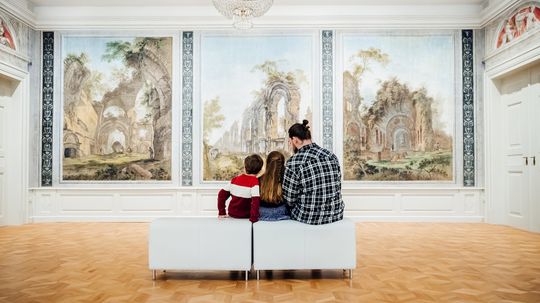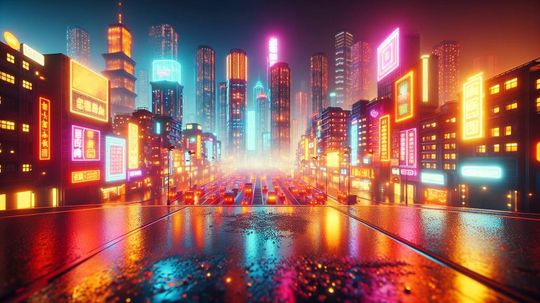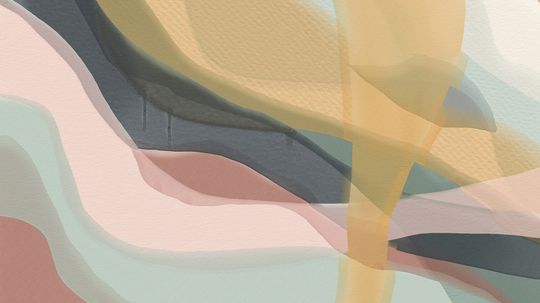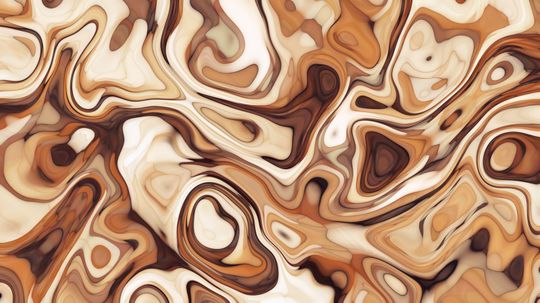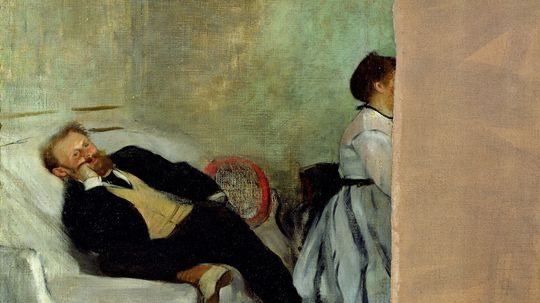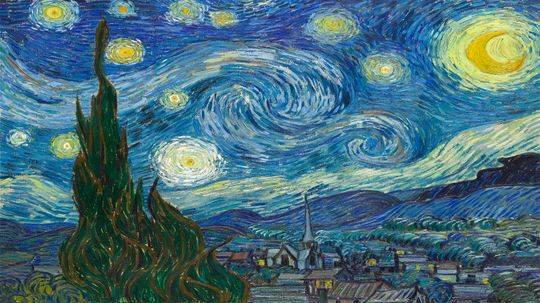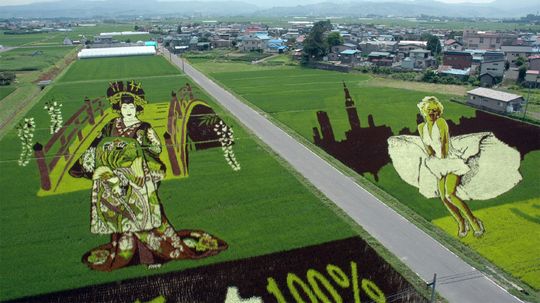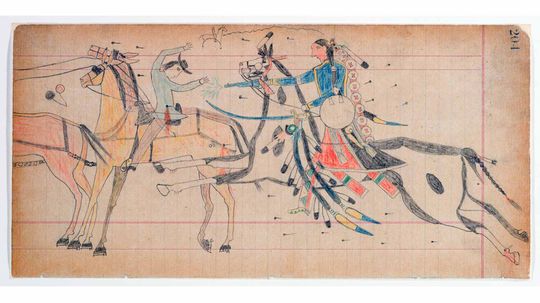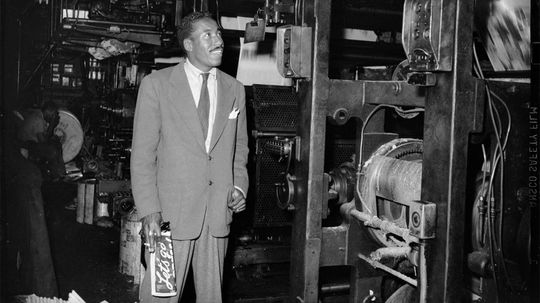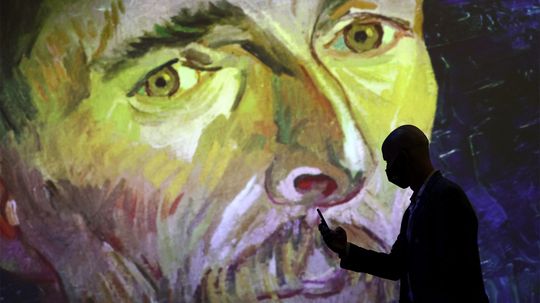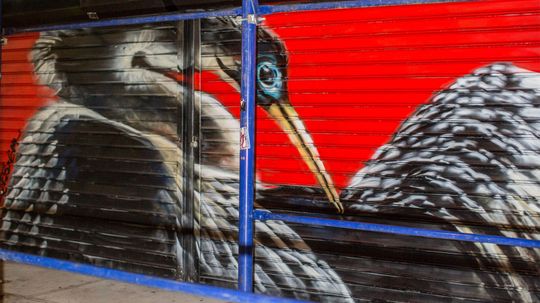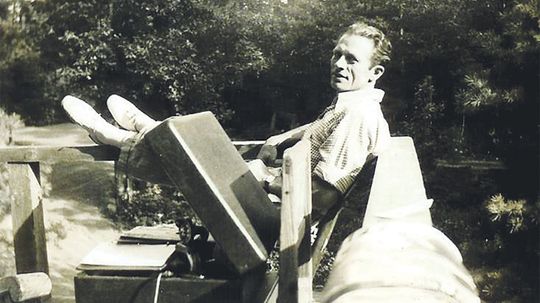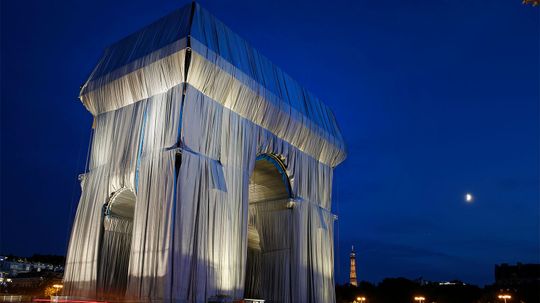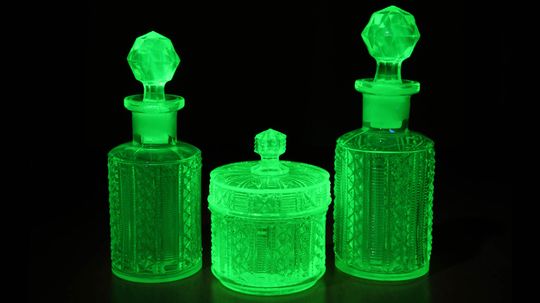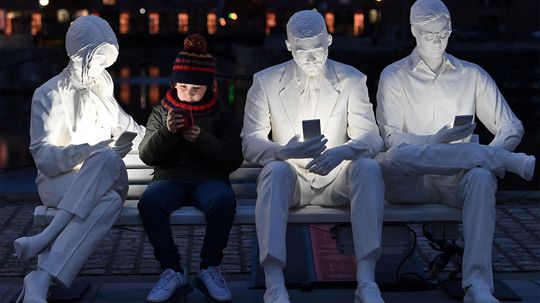Artwork
Artwork teaches us how to draw all sorts of objects, scenes and vistas where the world is your canvas and you can draw your own experiences.

Is the 'Lovely Assistant' the Real Magician?
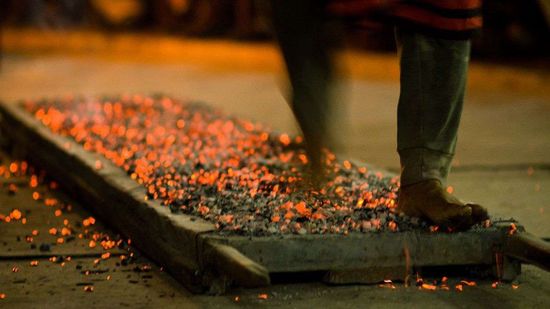
Dear Tony Robbins, THIS Is How You Walk on Hot Coals

Ringling Bros. Retiring Elephants Early. PETA Still Not Smiling
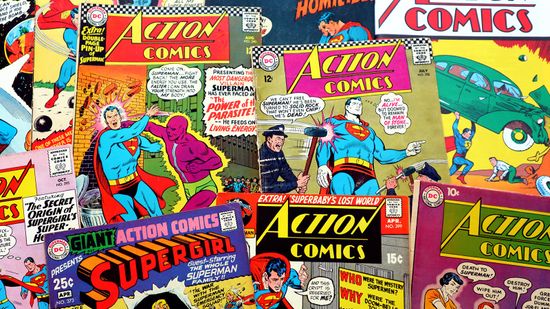
10 Most Powerful DC Characters: A Highly Subjective List
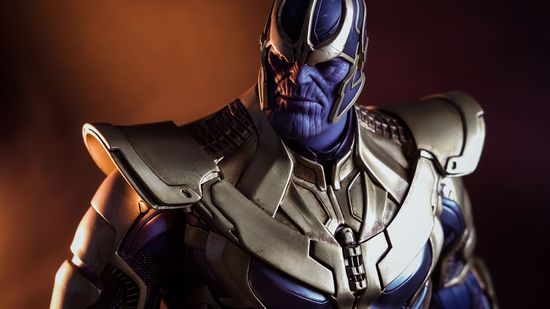
The Most Powerful Marvel Character: 15 Strong Contenders
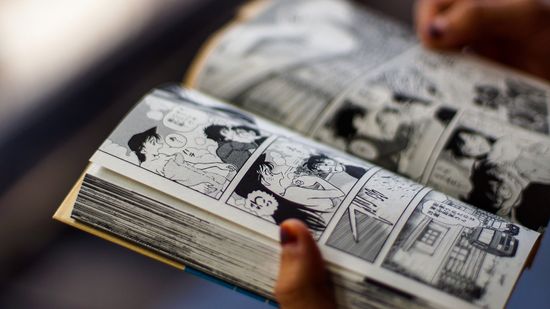
7 Manga Websites With Quality Options (Both Free and Paid)

The Scariest Books of All Time Prey on Your Insecurities

5 Types of Conflict That Make Things Interesting (For Better or Worse)

What Is Personification? All About a Common Literary Device

The Magical Art of Cambodian Shadow Puppetry Has Entertained for Centuries
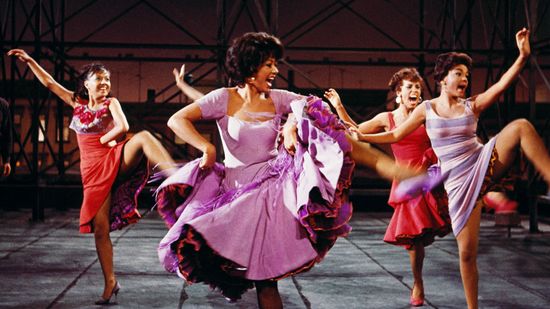
10 Groundbreaking Broadway Musicals

A High-stepping History of the Rockettes
Learn More
Walk into a museum, sit down to watch "The Nutcracker," glance at a graffiti wall or flip through a graphic novel, and you'll witness the world's many different types of art.
By Isla Brevant
Tertiary colors are where the magic of color mixing truly shines. These hues are the bridge between primary and secondary colors, creating a dynamic and vibrant spectrum.
By Talon Homer
You know what's great about neutral colors? They complement everything. Sure, neutral colors might not scream for attention like neon colors, but they're the backbone of design and style.
By Ada Tseng
Advertisement
Warm colors — including reds, oranges and yellows — evoke feelings of energy, passion and warmth. Warm and cool colors play off each other, with warm tones taking center stage when you want to create a lively, inviting atmosphere.
By Talon Homer
Secondary colors are the superstars that shine when any two of the three primary colors — red, blue and yellow — team up. The results are orange, green and purple. Think of them as the second level of the color wheel. In art class or any creative field, these hues are essential for building a full spectrum of colors.
By Talon Homer
Neon colors, also sometimes referred to as fluorescent colors, are the rock stars of the visible spectrum — bold, electric and impossible to ignore.
By Talon Homer
On the color wheel, analogous colors are neighbors, sitting right next to each other. Think of red and orange, yellow and green, or blue and purple.
By Ada Tseng
Advertisement
Split complementary colors are the perfect mix of contrast and harmony, offering a dynamic twist on the classic complementary color scheme.
Muted colors are the quiet heroes of the color world. These hues aren't as vivid or bold as saturated colors, but their subtle beauty lies in their ability to create a calming effect.
Complementary colors live on opposite sides of the color wheel. Imagine red and green, blue and orange, or yellow and purple. Or move a half step over on the wheel, and combine a yellow-green color with a red-violet color.
By Ada Tseng
Looking for a special trick to understanding what colors make brown? HowStuffWorks breaks down color combinations to help you get the perfect shade of brown.
By Yara Simón
Advertisement
Grudge matches can be found in every corner of the world, including the art world. Here are five rivalries that continued for years, involving famous painters like Van Gogh, Gaugin, Degas, Picasso and Banksy.
The bright yellow hue used to great effect by van Gogh and other painters was eventually outlawed, as it was made of urine from dehydrated cows.
"City," the much-anticipated, 50-year-long project by artist Michael Heizer, has opened in the desert of Nevada. But don't expect to be able to see it anytime soon.
Every April, the villagers of Inakadate, Japan, meet and decide what image to plant for the year. By summer, a rice paddy masterpiece will be born.
Advertisement
Plains Indian men kept historical records of their tribes in art. First with petroglyphs and pictographs and then on buffalo hides. When the white man came, they moved their art to ledger books.
The exhibit "Gordon Parks in Pittsburgh, 1944/1946," on display at the Carnegie Museum of Art, tells the gritty story of industrial life in America during WWII, shot by one of the preeminent photographers of the 20th century.
The Venice Biennale, the oldest biennial art exhibition in the world, is a showcase of all that is new in the world of art, attracting over 500,000 people during its 7-month run.
They seem to be all around us - immersive exhibits that enfold the viewer, moving us into the art instead of keeping us at viewing distance. So, why are they suddenly so popular?
Advertisement
Nearly 400 bird species are in danger of extinction by the end of this century and The Audubon Mural Project intends to depict every one of them.
By Carrie Tatro
Opus 40 is a 6.5-acre (2.6-hectare) earthwork sculpture that was hand-cut and created by artist Harvey Fite over a 37-year period. So how did he do it?
From early wrapped objects to monumental outdoor projects, the work of the late artist Christo transcended the traditional bounds of painting, sculpture and architecture.
By Carrie Tatro
Glass that glows? You bet. And that glow comes from a source you wouldn't believe. Uranium, the same radioactive ore now used to power commercial nuclear reactors.
By John Donovan
Advertisement
We're all at least passingly familiar with the art movements of the past - impressionism, dada, pop, cubism - but what are today's movements called? Turns out, pinning them down is a bit tricky.
Can a piece of art be so significant that it changes the way the world sees art itself? Clearly, the answer is yes.
